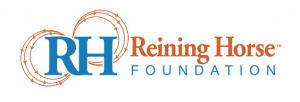 The U.S. Government has pledged $349 billion in forgivable loans to help people like you—NRHA Professionals, small-business owners, and more. The Paycheck Protection Program (PPP) is available to small businesses, sole proprietorships, self-employed individuals, independent contractors, and others. The deadline to apply is June 30, 2020, but don’t treat it like stall reservations or entry fees—apply as soon as you can, because the PPP is first come, first served, and when the money is gone, it’s gone.
The U.S. Government has pledged $349 billion in forgivable loans to help people like you—NRHA Professionals, small-business owners, and more. The Paycheck Protection Program (PPP) is available to small businesses, sole proprietorships, self-employed individuals, independent contractors, and others. The deadline to apply is June 30, 2020, but don’t treat it like stall reservations or entry fees—apply as soon as you can, because the PPP is first come, first served, and when the money is gone, it’s gone.
How Much May I Receive?
- 2.5x your average monthly payroll costs, up to $10 million.
- Calculate your average monthly payroll using calendar year 2019. For example, if your average monthly payroll for 2019 was $5,000, multiply $5,000 by 2.5, which is $12,500 in PPP relief. For sole proprietors or independent contractors, payroll costs are net earnings from self-employment (limited to $100,000).
- You may not include compensation to any one individual in excess of $100,000 or any compensation to an employee whose principal residence is outside the United States.
How Does It Work?
The PPP is structured as a forgivable loan. Generally, if you:
(1) use at least 75% of the loan amount for payroll and the remainder for rent, utilities, or mortgage interest within eight weeks after getting the loan; and
(2) don’t decrease your full-time staff or your wages by more than 25% for any employee that made less than $100,000, or if do, you restore your employment and salary levels by June 30, 2020, then your entire loan will be forgiven (i.e., you don’t have to repay it).
Forgiveness will be reduced if full-time headcount declines or if salaries and wages decrease.
Any amounts you don’t use for those purposes within eight weeks become a two-year loan at a 1% interest rate.
What Counts as Payroll?
- Payroll costs include gross wages (limited to $100,000/employee), employer cost of group health plans (including insurance premiums), and employer cost of retirement plan benefits.
- For sole proprietors or independent contractors, payroll costs are net earnings from self-employment (limited to $100,000).
Is It Hard to Apply for PPP?
Not at all. Several of your reiner friends have already done it.
- Apply at an SBA-approved bank. It’s best to contact your lender to confirm that the entity is an SBA lender and begin with their online application process. Be careful of scams. This program is only available through SBA-approved banks.
- The forms are pretty simple. Generally, the bank will ask you to provide the PPP borrower form (found at bitly.com/PPPBorrowerForm), a few bank-specific forms, and evidence of payroll.
- The application process for businesses opened April 3; independent contractors can apply beginning April 10.
The CARES Act also includes Economic Injury Disaster Loans and other programs, including payroll-tax deferral. Your situation will determine which you qualify for and what may be best. Consult your advisers or go to sba.gov.
When your business remains viable during the COVID-19 response, the reining industry remains stronger and poised for recovery when public safety is no longer in crisis. You are caring for your business and the reining community, because #ReinersCare.
The above is a summary of the CARES Act and the PPP. NRHA and RHF are not providing legal, accounting or financial advice. Please consult your professional advisors for a full understanding of your eligibility and the benefits and requirements of the Cares Act and the PPP.





